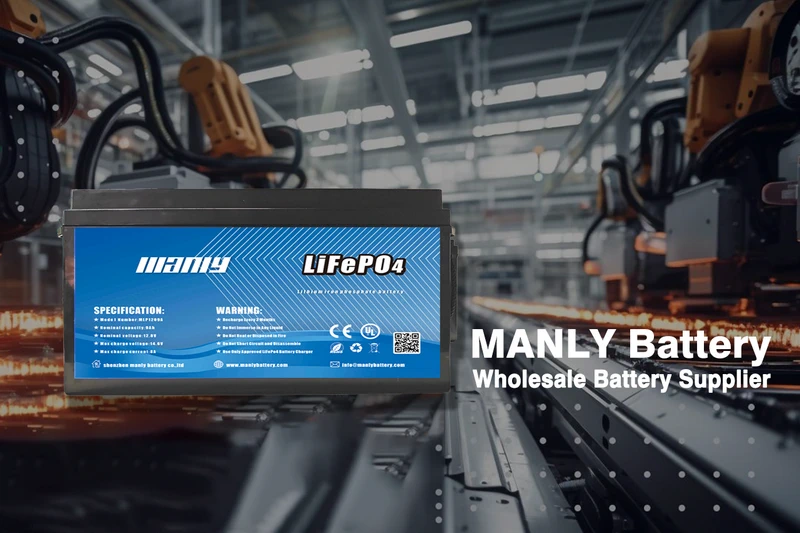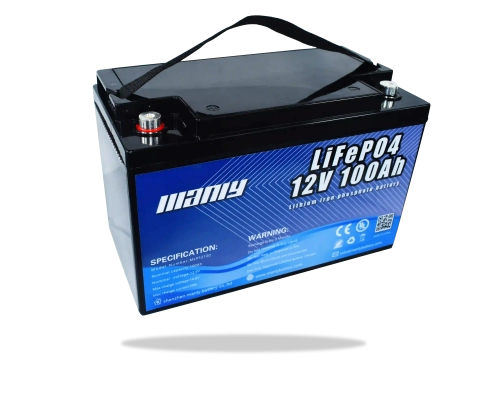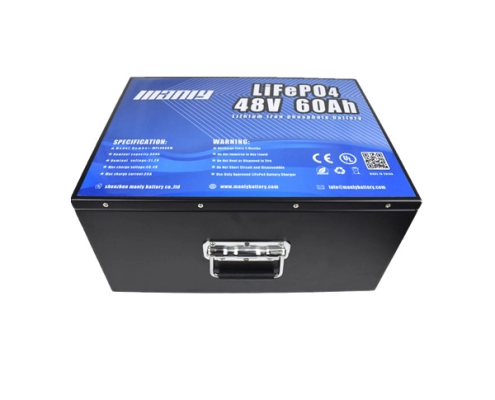2024 How Do You Find a Manufacturer for Lithium Battery
Table of Contents
- 2024 How Do You Find a Manufacturer for Lithium Battery
Selecting the right lithium battery manufacturer is crucial for businesses aiming to deliver high-quality products to their customers. This decision impacts not only the product’s performance but also the company’s reputation and profitability. Understanding the role of a manufacturer, assessing gross margins, deciding between international and domestic manufacturing, and evaluating cost versus quality are essential steps in this process. This guide provides a comprehensive overview to assist businesses in making informed decisions when choosing a lithium battery manufacturer.
What Is a Manufacturer for Lithium Battery?
A lithium battery manufacturer is a company that transforms raw materials into finished lithium batteries. These manufacturers supply their products to consumers, wholesalers, distributors, retailers, or other manufacturers who may incorporate the batteries into more complex products.
Manufacturers typically specialize in specific product types. For instance, some focus on producing glassware like bottles and jars, while others manufacture cardboard boxes for packaging. In the case of lithium batteries, these manufacturers design and produce batteries for various applications, including consumer electronics, electric vehicles, and energy storage systems.
It’s important to note that while all manufacturers are suppliers, not all suppliers are manufacturers. The term “supplier” encompasses any entity that provides products or inventory, including manufacturers, wholesalers, and distributors.
Before beginning your search for a supplier, it’s crucial to identify the type of supplier you need, as this will influence your research and the terminology you use. Common supplier options include:
- Manufacturers: Companies that produce unique product ideas.
- Suppliers: Entities that offer existing brands and products, which may include manufacturers, wholesalers, or distributors.
- Dropshipping Companies: Businesses that provide products from existing brands and fulfill orders on your behalf.
Understanding these distinctions will help you make informed decisions when selecting a supplier for your business needs.
Find a Manufacturer: Assessing Gross Margins and Business Strategy
Before selecting a lithium battery manufacturer, it’s crucial to evaluate your gross margins and overall business strategy. Understanding your financial standing and budget helps prevent costly mistakes during production.
Different businesses may have similar production budgets but require distinct manufacturing approaches due to product differences. For instance, a clothing company might need mass production, while a tech startup may only need to produce a specific component. Additionally, the volume of production can influence the choice of manufacturer.
When planning costs, unexpected intermediaries can erode your anticipated profits. Without thorough research into a manufacturer’s operations, you might end up paying more than necessary. Therefore, from a strategic perspective, every e-commerce entrepreneur should understand the following basic formula:
Profitability = (Selling Price – Unit Cost) – Customer Acquisition Cost
For example, if your sunglasses sell for $100 and the production cost is $10, you have $90 to cover other expenses. If acquiring a customer costs $50, your profit would be $40.
Profit ($40) = {Selling Price ($100) – Unit Cost ($10)} – Customer Acquisition Cost ($50)
Understanding this fundamental e-commerce dynamic will help drive your business forward.
To accurately assess your gross margins and determine the profitability of purchasing from MANLY Battery, you can use our Wholesale Price Calculator – Lithium Battery Wholesale Price. This tool provides precise margin estimates, aiding your business decisions.
International vs Domestic Manufacturing
When deciding between international vs domestic manufacturing, it’s essential to weigh the advantages and disadvantages of each option to determine the best fit for your business needs.
Domestic Manufacturing
Advantages:
- Faster Turnaround: Local production often results in quicker lead times, allowing for more responsive inventory management.
- Enhanced Quality Control: Proximity enables more frequent site visits and inspections, ensuring product standards are met.
- Reduced Shipping Costs: Shorter distances translate to lower transportation expenses and fewer logistical challenges.
- Support for Local Economy: Partnering with domestic manufacturers contributes to job creation and economic growth within your community.
- Simplified Communication: Operating within the same time zone and cultural context can lead to clearer and more efficient interactions.
Disadvantages:
- Higher Production Costs: Labor and operational expenses are typically greater domestically, potentially impacting profit margins.
- Limited Product Variety: Some specialized products or materials may not be readily available from local sources.
International Manufacturing
Advantages:
- Cost Savings: Countries like China, India, and Vietnam offer lower labor and production costs, which can reduce overall expenses.
- Diverse Product Options: Access to a broader range of materials and manufacturing techniques can enhance product offerings.
- Scalability: Many overseas manufacturers are equipped to handle large-scale production, accommodating business growth.
Disadvantages:
- Longer Lead Times: Extended shipping durations and potential customs delays can affect inventory management.
- Quality Control Challenges: Distance can make it harder to monitor production processes and maintain consistent quality.
- Communication Barriers: Language differences and time zone disparities may lead to misunderstandings and slower response times.
- Ethical Considerations: Concerns about labor conditions and environmental impact in certain countries may affect brand reputation.
A strategic approach involves establishing relationships with both domestic and international manufacturers. This dual-sourcing strategy provides flexibility; for instance, if international shipments face delays or errors, a local supplier can serve as a reliable backup. While domestic manufacturing may come at a higher cost, ensuring product availability and customer satisfaction can justify the investment.
Ultimately, the choice between domestic and international manufacturing depends on your specific business objectives, budget constraints, and the importance you place on factors like lead time, quality control, and ethical sourcing.
How to find a manufacturer for lithium battery in 6 steps
Finding the right lithium battery manufacturer is crucial for your business’s success. Follow these steps to identify and partner with a suitable manufacturer:
1. Conduct Thorough Research
Begin by exploring potential manufacturers through various channels:
- Online Searches: Use search engines to find manufacturers specializing in lithium batteries. Look for companies with comprehensive websites detailing their products and services.
- Industry Directories: Consult directories like ThomasNet or Maker’s Row, which list numerous manufacturers and suppliers.
- Professional Networks: Reach out to industry contacts or join relevant online communities to gather recommendations and insights.
2. Initiate Contact and Gather Information
Once you’ve identified potential manufacturers, reach out to them to collect essential information:
- Capabilities: Inquire about their experience with lithium battery production and their ability to handle custom orders.
- Lead Times: Understand their production schedules to ensure they can meet your deadlines.
- Minimum Order Quantities (MOQs): Determine the smallest order size they accept, as this can impact your initial investment.
- Pricing: Request detailed quotes to compare costs among different manufacturers.
3. Communicate Your Design Specifications
Clearly convey your product requirements to potential manufacturers:
- Detailed Descriptions: Provide comprehensive information about the battery’s intended use, size, capacity, and other specifications.
- Design Files: Share any technical drawings or CAD files to ensure accurate production.
4. Request Samples and Evaluate Quality
Before committing to a large order, obtain samples to assess the manufacturer’s quality:
- Testing: Evaluate the samples for performance, durability, and adherence to your specifications.
- Comparison: Review samples from multiple manufacturers to determine the best fit for your needs.
5. Negotiate Terms
Engage in discussions to establish favorable terms:
- Pricing: Negotiate costs to align with your budget while ensuring quality.
- MOQs: If the initial MOQ is too high, discuss the possibility of lower quantities for trial orders.
- Payment Terms: Agree on payment schedules that balance both parties’ interests.
6. Place Your Order
After finalizing terms and being satisfied with the samples, proceed with your order:
- Contract: Draft a detailed agreement outlining all terms, including quality standards, delivery schedules, and payment conditions.
- Production Monitoring: Stay in communication with the manufacturer throughout the production process to address any issues promptly.
By following these steps, you can establish a productive relationship with a lithium battery manufacturer that meets your business requirements.
Find a Manufacturer: Evaluating Cost vs. Quality
When selecting a lithium battery manufacturer, it’s essential to balance cost vs. quality to ensure your products meet both performance standards and budget constraints.
Material Quality and Pricing
The quality of materials used in lithium batteries directly affects their cost. High-quality components, such as premium cathode materials, enhance battery performance and longevity but come at a higher price. Investing in superior materials can lead to better customer satisfaction and reduced returns, though it may require a larger upfront investment.
Durability vs. Cost Savings
Choosing between more durable batteries and less expensive alternatives involves several considerations:
- Customer Expectations: Understand your target market’s priorities. Some customers may prioritize affordability over longevity, while others may value a longer-lasting product.
- Brand Reputation: Offering high-quality, durable batteries can enhance your brand’s reputation and lead to repeat business.
- Long-Term Costs: While durable batteries may have higher initial costs, they can reduce long-term expenses related to returns, replacements, and customer dissatisfaction.
Hidden Costs in Manufacturing
Beyond the base price quoted by manufacturers, be aware of additional expenses that can impact your overall budget:
- Shipping and Import Duties: International manufacturing often involves significant shipping costs and import duties.
- Currency Exchange Rates: Fluctuations in currency values can affect the final cost of goods.
- Quality Control: Implementing third-party inspections or quality assurance measures adds to expenses but helps ensure product standards.
- Tooling and Setup Fees: Custom designs may require specialized tooling, leading to additional setup costs.
By carefully evaluating these factors, you can make informed decisions that align with your business objectives and customer expectations.
Conclusion
In conclusion, finding the ideal lithium battery manufacturer requires a strategic approach that balances cost, quality, and business objectives. By thoroughly researching potential manufacturers, understanding the financial implications, and carefully evaluating the trade-offs between domestic and international production, businesses can establish strong partnerships that lead to the production of reliable and efficient lithium batteries. This careful selection process not only ensures product excellence but also contributes to long-term business success and customer satisfaction.






